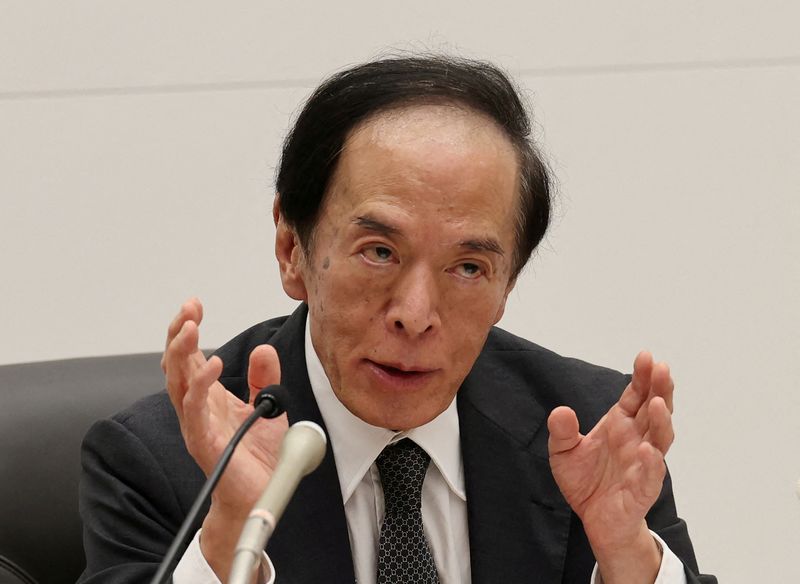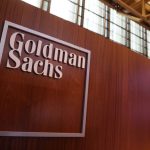
By Leika Kihara and Yoshifumi Takemoto
TOKYO (Reuters) – Bank of Japan Governor Kazuo Ueda said on Monday the central bank will raise interest rates further if the economy continues to improve, though he stressed the need to consider various risks when deciding how soon to pull the trigger.
Ueda last month cited uncertainty over U.S. President-elect Donald Trump’s economic policies and Japan’s domestic wage outlook as reasons to hold off raising interest rates.
The BOJ has repeatedly said sustained, broad-based wage hikes are a prerequisite for pushing up borrowing costs, and Prime Minister Shigeru Ishiba on Monday pledged to take steps to boost Japan’s minimum wage and increase consumption.
“During Japan’s period of deflation, companies boosted dividends and overseas investment. But domestic investment and consumption lacked momentum. We’re finally seeing some bright signs of change,” Ishiba told a news conference.
Ueda said he hoped last year’s momentum towards sustainably achieving the central bank’s 2% inflation target would continue in 2025.
“If economic and price conditions continue to improve, the BOJ will raise its policy rate accordingly,” Ueda said in remarks at a New Year’s event hosted by a banking-sector lobby.
“The timing for adjusting the degree of monetary support will depend on economic, financial and price developments in the future. We also must be vigilant to various risks,” he added.
After ending massive monetary stimulus and raising rates to 0.25% last year, the BOJ has kept markets guessing on how soon it could hike again. While some investors are betting on the bank’s Jan. 23-24 meeting, others see a stronger chance of March or beyond.
The benchmark 10-year Japanese government bond yield rose 3.5 basis points to 1.125% on Monday, the highest level in 13-1/2 years, partly due to simmering expectations of a near-term rate hike.
That hinges on whether Japanese firms, which offered the biggest pay hike in three decades in 2024, will continue to deliver bumper wage increases despite slowing global demand and Trump’s threats of higher tariffs.
Many big firms settle annual wage negotiations around March, though Ueda has said the BOJ does not necessarily need to wait until then to make a move.
The central bank’s quarterly report on regional Japanese economies, due on Thursday, could offer insight into the bank’s view on wage increases, while Deputy Governor Ryozo Himino may hint at the timing of rate hike in a speech and news conference on Jan. 14.






